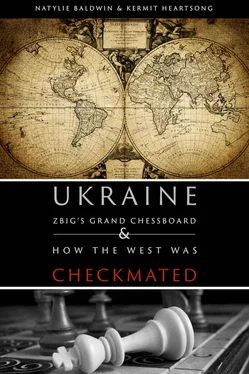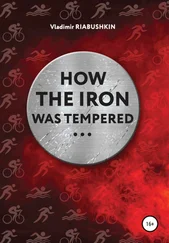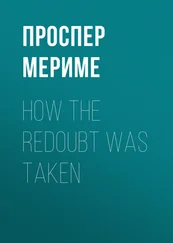Kermit Heartsong - Ukraine - ZBIG's Grand Chess Board & How The West Was Checkmated
Здесь есть возможность читать онлайн «Kermit Heartsong - Ukraine - ZBIG's Grand Chess Board & How The West Was Checkmated» весь текст электронной книги совершенно бесплатно (целиком полную версию без сокращений). В некоторых случаях можно слушать аудио, скачать через торрент в формате fb2 и присутствует краткое содержание. Год выпуска: 2015, Жанр: Политика, на английском языке. Описание произведения, (предисловие) а так же отзывы посетителей доступны на портале библиотеки ЛибКат.
- Название:Ukraine: ZBIG's Grand Chess Board & How The West Was Checkmated
- Автор:
- Жанр:
- Год:2015
- ISBN:нет данных
- Рейтинг книги:4 / 5. Голосов: 1
-
Избранное:Добавить в избранное
- Отзывы:
-
Ваша оценка:
- 80
- 1
- 2
- 3
- 4
- 5
Ukraine: ZBIG's Grand Chess Board & How The West Was Checkmated: краткое содержание, описание и аннотация
Предлагаем к чтению аннотацию, описание, краткое содержание или предисловие (зависит от того, что написал сам автор книги «Ukraine: ZBIG's Grand Chess Board & How The West Was Checkmated»). Если вы не нашли необходимую информацию о книге — напишите в комментариях, мы постараемся отыскать её.
Ukraine: ZBIG's Grand Chess Board & How The West Was Checkmated — читать онлайн бесплатно полную книгу (весь текст) целиком
Ниже представлен текст книги, разбитый по страницам. Система сохранения места последней прочитанной страницы, позволяет с удобством читать онлайн бесплатно книгу «Ukraine: ZBIG's Grand Chess Board & How The West Was Checkmated», без необходимости каждый раз заново искать на чём Вы остановились. Поставьте закладку, и сможете в любой момент перейти на страницу, на которой закончили чтение.
Интервал:
Закладка:
Financial Crisis of 2008
Russia has refused to play the debt and austerity game and has been seeing positive results. In response to the 2008 financial meltdown, Russia implemented a large stimulus package facilitated by the rainy day funds mentioned above. Public debt, as of 2013, is 7.7 percent of GDP compared to 72.5 percent for the US. The Russian government will not borrow more than 1 percent of GDP and keeps reserve funds at a 7 percent minimum, according to Russia’s Finance Minister, Anton Siluanov, and has been running virtually no budget deficit (Roxburgh 2013; Mellow 2013).
From the post-crisis period of 2009 to the present, all 10 of Russia's top exports (mineral oils (58 percent), iron and steel, pearls, gems and precious metals, fertilizers, machinery, wood, and aluminum) posted double-digit increases. These gains ranged from 24 percent for aluminum to 257 percent for non-industrial diamonds (World’s Top Exports 2013).
Furthermore, Russia's unemployment rate was 5.8 percent in 2013—lower than the US (7.4 percent) and the EU (12 percent) (World’s Top Exports 2013; BLS 2014; Eurostat 2014).
In early September of 2014, the Global Competitiveness Report showed that Russia had gained 11 points and was among 3 nations that recorded increased values in all areas since 2010, representing Russia's biggest jump in that report's findings.
According to the report, “Russia is better than 40 thin four categories — market size (7 th), macroeconomic environment (31 st), higher education and training (39 th), and infrastructure (39 th)” (RT 2014).
Economy still a work in progress
Despite the phenomenal success enjoyed by Russia since 2000—largely achieved by not following the Neoliberal prescriptions of the West — Medvedev and Putin have both admitted that Russia's economy is still too dependent upon fossil fuels and raw materials exports.
Putin himself also conceded in a 2013 conference sponsored by a state-owned bank in Russia that productivity is lagging compared to other developed nations (Mellow 2013).
And, of course, there is the continuing issue of corruption in government bureaucracy and in the business community, which erodes confidence and increases costs of those wanting to do business in Russia, whether they’re Russians or foreigners. The Global Competitiveness Report cited above noted that a “major overhaul” was still needed to eradicate corruption and favoritism. In his December 2013 Annual Address to the Federal Assembly — the equivalent of the State of the Union — Putin pushed for the Duma (Russian legislative body) to draft a law streamlining an arbitration court system for resolution of economic conflicts. This law would also develop a federal portal that would provide transparent information on all inspections of businesses and publish a national rating of the investment climate in the nation’s various regions. The portal has since been implemented (RT 2014).
To grasp the possible significance of the portal, one must understand the background and nature of corruption in Russia. It is mostly a problem among local officials (90 percent of all corruption is estimated to be at the local level) throughout the country. Along with the powerful class of oligarchs that came to control the Kremlin in the 1990s were the 89 regional governors throughout the Russian Federation who ruled their respective fiefdoms, enriching themselves through massive bribery. Lower on the food chain were local officials who earned paltry salaries and bilked new entrepreneurs for bribes in exchange for signing off on official documents as well as contriving inspections on charges of flimsy or non-existent violations, requiring the payment of additional bribes for clearance.
Part of the reason this kind of corruption persists is due to the strong historical roots of getting essential things done via “connections” and its associated prestige rather than the rule of law as a foundation. This was the case in Czarist Russia as tributes were typically paid in the form of goods or money to officials as part of the feudalism-like system, which was gradually dismantled in the rest of Europe but continued in Russia. Due to Russia's sprawling geographic size and its lack of a developed transportation system, interaction with the outside world and the attendant exposure to new ideas was hindered until the 19th century. Russians' relationship with governmental authority was modeled on the administrative state system inherited from the Mongols. Consequently, their social contract had never been that of a citizen with rights or sovereignty but as subjects that were granted varying amounts of social protection, and later some limited decision-making within autonomous peasant communities, in exchange for submission to state authority. Submission was enforced by a harsh bureaucracy.
This arrangement of deference to authority and reliance on “connections” to obtain necessities continued under the Soviet system, with deference to authority demanded in exchange for security, stability and a degree of social protections. There was also the Communist Party bureaucracy with party managers who lorded over their respective regions (Tennison 2012; Szamuely 1974).
A further step to address corruption is a draft bill being drawn up as of October 2014 to stop tax evasion and “gray capital outflows” through offshoring. Another key reason for this legislation involves keeping money in Russia to provide internal financing to bring productive capacity online for import substitution and increased general industrial and technical buildup, which requires internal credit sources (Business New Europe 2014).
Despite the almost $9 billion worth of exports in machinery and almost $5 billion in electronic equipment in 2013, Russia's manufacturing base is not where it could be. However, as Fred Weir wrote in the Christian Science Monitor in July of 2014, sanctions could have the serendipitous effect of prompting progress on this front. Some analysts he spoke to argued that “the Russian government can use its nearly half-trillion dollars in foreign currency reserves to bolster the ruble and back investments in domestic industries. That could make up for the coming loss of virtually all Ukrainian imports and redirect Russia's economy from raw materials exports to modern manufacturing and services” (Weir 2013). Stopping the bleeding of offshoring is a step in that direction.
Another approach discussed in Weir’s article was kicking Russia’s growing economic ties with the world outside of the Atlanticist bloc — as exemplified by BRICS — into high gear (Weir 2013).
A common response in the Anglo-American media to Russia's recent retaliatory measure of banning most agricultural imports from the US and EU was that Russians would go hungry and were, therefore, shooting themselves in the foot. Within a matter of days of the announcement, however, numerous Latin American countries, namely Argentina and Brazil, got in line to fill the gap. In addition, China started selling produce directly to Russia and plans to set up a cross-border wholesale market and warehouse complex on its northeastern border (Brown 2014; RT 2014).
More importantly, according to the Food and Agricultural Organization, Russia ranks in the top three producers in the world for a range of agricultural products, from various fruits and vegetables to non-wheat grains, potatoes and poultry. It is not among the top 10 food importers and has had plans in place since 2013 to significantly boost its already respectable production of organic produce from small farms and gardens (Brown 2014).
Natural Society reported in May of 2013 that 35 million Russian families are growing an impressive percentage of Russia's fruits and vegetables on 20 million acres:
According to some statistics, they grow 92 % of the entire countries' potatoes, 77 % of its vegetables, 87 % of its fruit, and feed 71 % of the entire population from privately owned organic farms or house gardens all across the country. These aren't huge Agro-farms run by pharmaceutical companies; these are small family farms and less-than-an-acre gardens. (Sarich 2013)
Читать дальшеИнтервал:
Закладка:
Похожие книги на «Ukraine: ZBIG's Grand Chess Board & How The West Was Checkmated»
Представляем Вашему вниманию похожие книги на «Ukraine: ZBIG's Grand Chess Board & How The West Was Checkmated» списком для выбора. Мы отобрали схожую по названию и смыслу литературу в надежде предоставить читателям больше вариантов отыскать новые, интересные, ещё непрочитанные произведения.
Обсуждение, отзывы о книге «Ukraine: ZBIG's Grand Chess Board & How The West Was Checkmated» и просто собственные мнения читателей. Оставьте ваши комментарии, напишите, что Вы думаете о произведении, его смысле или главных героях. Укажите что конкретно понравилось, а что нет, и почему Вы так считаете.











